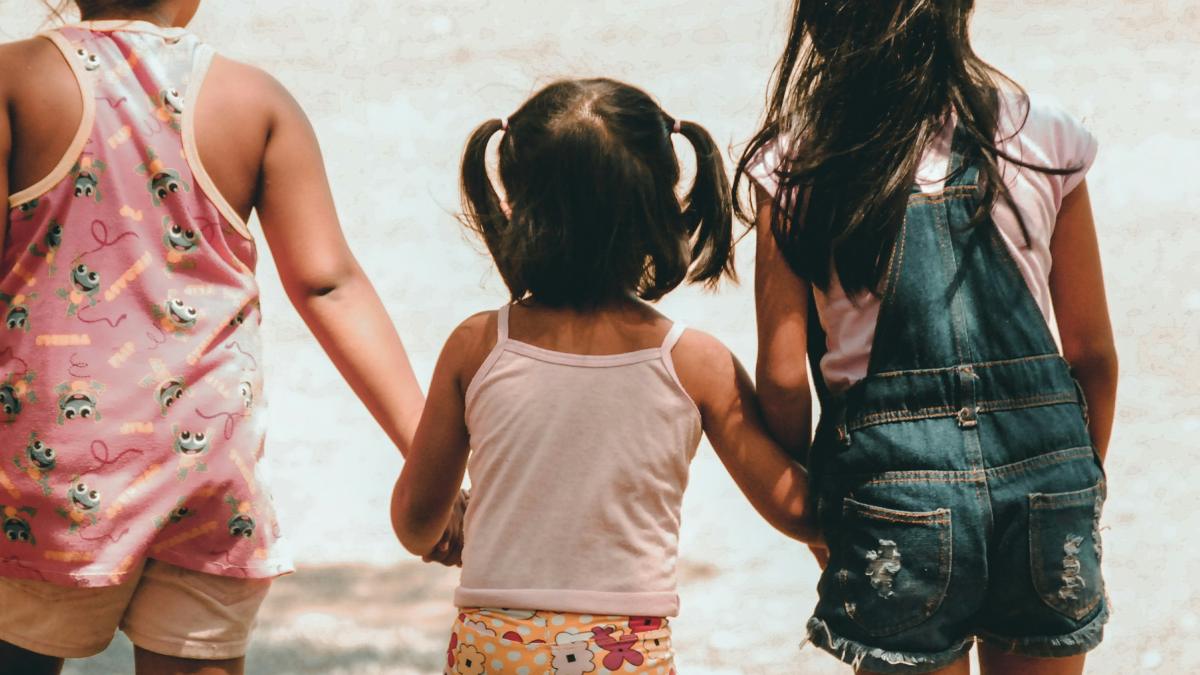
3 Ways For Parents To Squash Their Children's 'Sibling Rivalry Dynamic'
When siblings become too competitive between one another, it might be time for a parent to swoop in and save the day.

By Mark Travers, Ph.D. | March 26, 2024
Sibling rivalry is a common occurrence within families, characterized by competition, jealousy and conflict between brothers and sisters. It emerges from the natural comparison and competition between siblings, leading to feelings of resentment, envy and sometimes even hostility.
The roots of sibling rivalry can be traced back to a combination of psychological, emotional and environmental factors. From a psychological standpoint, sibling rivalry can arise from a need for attention, validation and recognition within the family. Environmental factors may include the arrival of a new sibling or competition for resources like toys and parental time.
Furthermore, sibling relationships are heavily influenced by the parenting style and dynamics within the family. Whether it's inadvertently comparing siblings, showing favoritism or failing to address conflicts effectively, parental actions can exacerbate feelings of competition and rivalry between siblings.
Here are three strategies parents can employ to prevent sibling rivalry.
1. Avoid Playing Favorites
Research confirms that overt favoritism toward one child can significantly worsen sibling rivalry. Whether it's unequal praise, privileges or punishments, favoritism communicates inequality and can fuel animosity among siblings. Take the following steps in order to eliminate the "pedestal" and level the playing field for your children:
- Give equal attention. Consciously allocate quality time to each child individually—engaging in activities they enjoy, having meaningful conversations or simply being present and attentive to their needs. Rotating focus and attention among children prevents inadvertent favoritism.
- Give fair praise and recognition. Each child deserves recognition for their accomplishments and effort—whether it is academic success, extracurricular achievements or acts of kindness. Avoid comparing siblings or showing preference for one child's achievements over the other's to ensure fairness and nurture a positive environment.
- Mete out equitable discipline. When addressing misbehavior or conflicts, apply discipline consistently and fairly across all children. Avoid singling out or disproportionately punishing one child, focusing instead on teaching valuable lessons and encouraging positive behavior changes for all.
- Balanced material resources. Be mindful of how material resources, like gifts, privileges and opportunities, are distributed among children. Strive to provide equitable access based on each child's needs and interests to promote fairness within the family.
2. Create A 'Sibling Appreciation Ritual'
A study published in Journal of Family Psychology has shown that meaningful family rituals can strengthen family cohesion, facilitate emotional expression and connection and nurture a sense of identity and belonging within the family.
To prevent sibling rivalry from blowing up, set aside a specific time each week for "sibling appreciation hour," where siblings take turns sharing something they admire about each other. During this time, each child can offer genuine compliments, acknowledgments or gratitude towards their siblings. This ritual not only fosters positivity and strengthens sibling bonds but also helps children develop the habit of recognizing and valuing each other's unique qualities.
To make it more engaging, you can create a "compliment jar" or a "gratitude board" where siblings can write down their appreciations throughout the week and read them aloud during the designated time. This adds an element of surprise and anticipation, making the ritual even more special.
3. Encourage Positive Conflict Resolution
Sibling disagreements offer valuable opportunities for children to hone their conflict resolution skills—from managing anger to practicing negotiation tactics. Allowing them to practice compromise, sharing and attentive listening can be beneficial. When appropriate, grant them space to resolve issues among themselves rather than intervening in every disagreement.
However, it's crucial to step in if one child is being targeted or taken advantage of by their sibling. When necessary, demonstrate healthy conflict resolution techniques and collaborate with them to find constructive solutions.
Children who receive guidance on managing disagreements constructively, such as by actively listening to their sibling's perspective or refraining from name-calling, are better equipped to resolve conflicts and move beyond fighting.
For example, a 2014 study indicated that parents who mediated conflicts were more inclined to discuss their children's emotions, avoid blaming them for past incidents and propose more solutions as compared to parents who did not. Children whose parents mediated conflicts demonstrated increased initiative in seeking resolution plans, contributing to solution generation and engaging in discussions about emotions with their siblings.
Is the cold war between your kids burning you out? Take the Parental Burnout Assessment to learn more.
A similar version of this article can also be found on Forbes.com, here.
